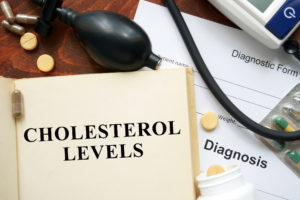 So, you’ve got healthy cholesterol at the moment. Or maybe you just think you do. After all, it’s possible you have no idea at all.
So, you’ve got healthy cholesterol at the moment. Or maybe you just think you do. After all, it’s possible you have no idea at all.
And if you had high cholesterol, you’d know it, right? Not so fast.
Advertisement
If you haven’t had your cholesterol checked by a healthcare professional in the past year, you could be in trouble. I don’t want to alarm you, but high cholesterol has no symptoms and levels can change rather quickly. Healthy readings from two years ago might not mean much today.
When symptoms of high cholesterol do appear, symptoms might be irreversible. Shortness of breath, chest pains, or angina can indicate that fatty plaques have already settled on your arterial walls and you may have heart disease.
Prevention or management is of the essence. Activity levels and diet can help bring cholesterol down and improve heart health. So, for the next three months, here’s what you should do:
Visit your doctor for a cholesterol test. If your pharmacy does them, you can go there too.
Then try cutting back on saturated fat intake. Swapping olive oil for butter and limiting fatty cuts of meat for leaner cuts can help. Including nuts, legumes, oats, and other fiber-rich whole grains and vegetables can all help reduce “bad” LDL cholesterol that builds on arterial walls.
Increasing activity levels helps too. At the very least, aim for about 2.5 hours of moderate-intensity exercise per day. Shooting for 10,000 steps per day is a great target, but do more if it doesn’t get your rate up.
But what about genetics? If you’ve been eating healthy and maintaining activity for three months and tests reveal cholesterol has hardly budged, genetics could be at play.
Advertisement
In this case, learn about your family’s history for cholesterol, heart attack, and heart disease. You might discover that despite being slender and fit, your father and aunt were taking statins to keep levels in control.
Even a healthy lifestyle doesn’t leave everyone in the clear.
Do your best to get a handle on your cholesterol and avoid an untimely surprise. High cholesterol is a major heart disease risk factor and its effects can take hold before you know it.
